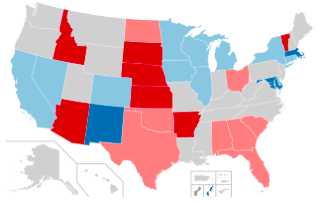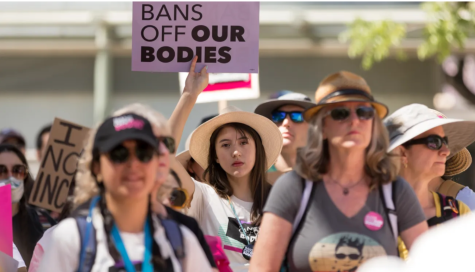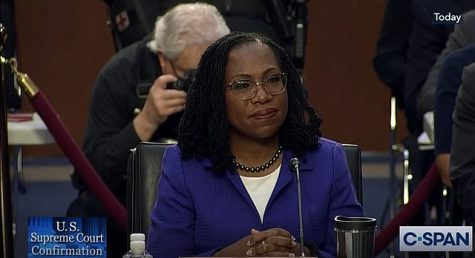Amy Coney Barrett confirmation hearing accelerates
As Judge Barrett faces tough questions during her Senate hearing, she dodges most questions that stem from previous court decisions. Barrett is expected to be confirmed in the next weeks.
November 2, 2020
After the death of longtime Supreme Court Justice Ruth Bader Ginsburg on September 18, the Republican dominated Senate moved to fill her spot quickly, nominating ultra-conservative Amy Coney Barrett to the position.
Quickly after refusing President Barack Obama’s nominee in 2016, claiming it was too close to an election, the same GOP controlled Senate has continued with the confirmation hearings of Barrett, while more than 75 million Americans have already voted for the next president.
As Barrett sat to be questioned, Democrats questioned her past controversial views on the LGBTQ+ community, Roe v. Wade, and the Affordable Care Act.
House GOP admired her pro-life stances and admitted articles of recommendation from several conservative and pro-life organizations to support her appointment.
One of the most notable parts throughout her hearing was her inability to list all five freedoms granted under the First Amendment and failure to answer any questions.
Whenever posed with a question pertaining to current events, such as voter suppression, immigrant policy, and the legality of a smooth transition of power, her response was inconclusive as she claimed that it was too political to answer.
After facing questions about same-sex marriage, Barrett dodged every question by explaining she could not opine on existing cases.
Barrett said, “I just, because I am a sitting judge…I just can’t give answers to those very specific questions.”
Barrett’s complications between her devout Catholicism and ability to judge unbiased have created concerns among house democrats and citizens, as they don’t believe in her ability to separate Church and State.
While defending her ability to separate her beliefs from court rulings, Barrett said, “I can, I have done it on my time on the seventh circuit…if I am confirmed to the Supreme Court I will do that still.”
As the hearings progressed, Barrett was confirmed to the Supreme Court on October 29, with a leading vote of 52-48, as only one member of the GOP voted against the nomination.
With a new conservative judge confirmed to the Supreme Court, a 6-3 conservative majority can be devastating to the US, from the Affordable Care Act, Roe v. Wade, and to marriage equality.
As Americans brace themselves for a new Justice, they are unsure of the rights they will be granted or revoked with an unbalanced court, leaning highly towards conservatism.













